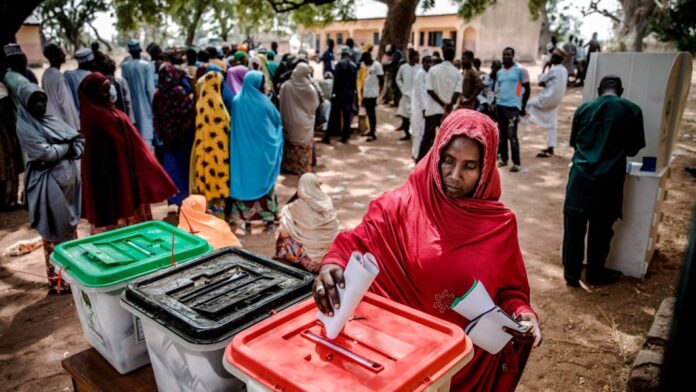Elections: Root of all our afflictions!
By Nnamdi Nwigwe
A look at the political history of our beleaguered country would reveal that elections – national and local – have been the taproot of all our national paroxysms.
Starting from Nigeria’s pre-Independence general elections of December 12, 1959, conducted under the watch of the departing colonial officials, it has always been one post-election crisis after another.
Mind you Nigeria was operating a quasi-self-government in the Eastern and Western Regions from 1957 – a step behind full Independence – because the government of the Northern Region said the North was not quite ready for total Independence by 1957.
The British Colonial overlords managed to clobber together a form of Federal Government headed by the leader of the largest political bloc in the House of Representatives, the Northern People’s Congress (NPC), Sir Abubakar Tafawa Balewa (the first and last Prime Minister).
Two other major political parties the Action Group (AG) and the National Council of Nigeria and the Cameroons (NCNC) held sway in the South.
The AG leader Chief Obafemi Awolowo became the Opposition Leader. The former leader of the NCNC, Dr. Nnamdi Azikiwe had replaced the expatriate representative of Queen of England as the first indigenous Governor-General.
That was the position after the 1959 general elections that ushered in our Flag Independence on October 1, 1960.
The next general elections were the first post-independence exercise of December 30, 1964, which ended in a cliffhanger crisis when the Governor-General demurred to invite the Prime Minister to form a government. One Region, the East, had boycotted the election in protest of the result of the National Population Census of 1963. Later on, however, a belated poll was conducted to enable the East to send representatives to the Parliament in Lagos. The distemper over the disputed population exercise and intra-party bickering within the big political parties fouled the political environment.
READ ALSO: TheNiche Lecture 2023: Why does Nigeria stride and slide?
Desire to have a bite of the political pie at the Centre led to betrayals and perfidy among otherwise close associates to such an extent that practically every Region was in turmoil between 1960 and 1964 when the next election was due.
Leader of the major party in the West, the Action Group, Chief Obafemi Awolowo, was in prison having been convicted of a treasonable felony charge in 1962.
The Regional Elections in the post-Independence period naturally reflected the feisty political atmosphere across the country, particularly in the West where a rift had blown open between Awolowo’s group and Akintola his former deputy, who had formed a new party that now ruled from Ibadan.
A normal regional election in the Western Region in 1965 was acrimonious and purportedly so rigged that the region was practically boiling.
It was in this mood of palpable disaffection across the country that the Nigerian Army struck on January 15, 1966, in Nigeria’s first military coup and sacked the bungling politicians. But there was yet another coup on July 29, 1966, commonly referred to as “counter-coup” or “revenge-coup.”
The mindless killings that followed in months to come and the refugee experience eventually snowballed to the 30-month Nigeria-Biafra civil war from July 6, 1967, to January 12, 1970.
With the military totally in control thereafter no elections were held in the country until 1979 leading to the return of civilian rule from October 1. But the civilian administration lasted only four years when the military returned on December 31, 1983 led by Major General Muhammadu Buhari and Major General ‘Tunde Idiagbon.
Politicians were to taste governance again 13 years after, in 1999 after a general election. The military had before then attempted to conduct some form of elections with them still ruling, the most notable being that of June 12, 1993! This particular hybrid election nearly incarcerated the nation when the organizers, the regime of General Ibrahim Babangida, peremptorily annulled its results.
The civilian polls of 1999, 2003, 2007, 2011, 2015, 2019 (the worst so far), and the latest, that of 2023, all led to judicial decision as a result of poor conduct or outright rigging. A historic exception (which didn’t reach the courts) was the presidential election of 2007 in which Umaru Musa Yar’Adua emerged as winner. But he stunned the world with a disarming admission at his inauguration that the election that brought him to the office was vitiated.
With this consistent disfigurement of our democracy by the convoluted conduct of elections which are the hub of democracy as we know it, isn’t it about time for a national conference to be convoked to work out a pragmatic and sustainable new method of conducting, if you like, a uniquely Nigerian brand of (s)electing representatives to both Executive and Legislative offices?
Yes, we can. We sorely require to think out of the box and adopt a CAN DO MENTALITY.













